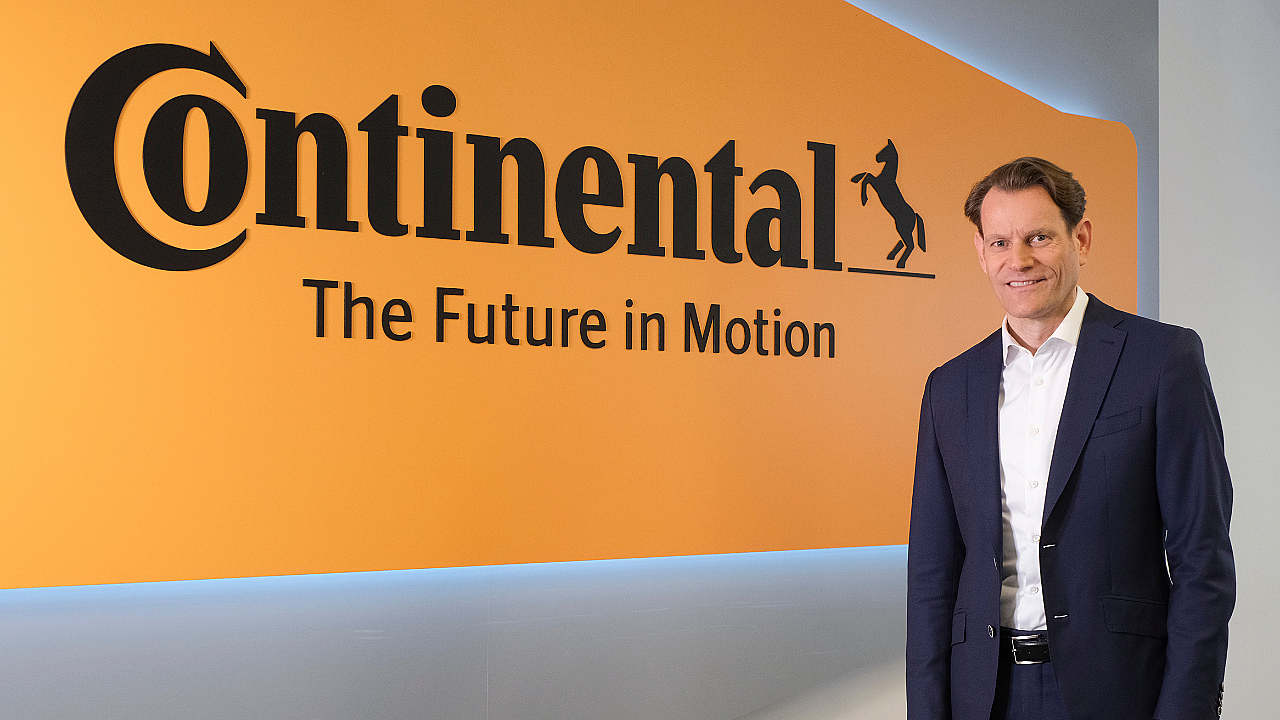
Deifying effects of coronavirus pandemic, low automotive production due to electronic component shortages, and significant cost increases in procurement and logistics, global technology company Continental has announced that it has performed well in operative terms in 2021 and achieved a positive net income.
A press statement from the company said it has achieved its adjusted annual targets. With its realigned strategy and corresponding market-oriented structure, it has strategically set its course for the future.
At the annual financial press conference today in Hanover, Nikolai Setzer, CEO of Continental, said, “The past fiscal year was again a very trying one for us. Despite the many challenges, we performed well operationally in 2021 and achieved a positive net income. We are well positioned thanks to our focused portfolio and our comprehensive software and digitalization expertise. Under a single roof, we are jointly gathering momentum for our strategic realignment.”
Improved Consolidated Sales
According to preliminary figures, the company’s consolidated salestotalled €33.8 billion in the past fiscal year (2020: €31.9 billion, +6%). “While the low production level worldwide has had a negative impact, particularly on our automotive business, our Tyres and ContiTech sectors achieved a good result despite massive cost increases in the areas of procurement and logistics,” said Setzer.
Following a negative net income in the previous year resulting from incurred expenses and impairments on property, plant and equipment, the company achieved a net incomeof €1.5 billion in 2021 (2020: -€962 million).
FY22 Expectations
If the geopolitical situation, particularly in Eastern Europe, remains tense or even worsens, it can result in lasting consequences for production, supply chains, and demand. Depending on the severity of the disruption, this may result in lower sales and earnings in all group sectors and the Continental Group compared to the prior year.
Not including these risks, Continental expects that the global production of passenger cars and light commercial vehicles will increase by 6-9% in 2022. However, in 2021, this increased year on year by only around 3% to approximately 77 million vehicles due to the semiconductor shortage. The company also anticipates higher procurement and logistics costs of about €2.3 billion.
Based on our assumptions regarding the trends in the markets and industries for 2022, the company anticipates consolidated sales of around €38 billion to €40 billion and an adjusted EBIT margin of around 5.5 to 6.5%. The company, however, expects that business will gradually improve following a subdued start to the year.
For the automotivegroup sector, Continental forecasts sales of around €18 billion to €19 billion with an adjusted EBIT margin of around 0-1.5%.
For the tyres group sector, the company expects sales of between around €13.3 billion and €13.8 billion with an adjusted EBIT margin ranging between 13.5 and 14.5%.
For the ContiTechgroup sector, it expects sales of between around €6 billion and €6.3 billion with an adjusted EBIT margin ranging between 7-8%.
Increasing Order Intake
Last year, the technology company continued to make focused investments in its research and development activities. Its total expenditure for this purpose amounted to around €2.6 billion (2020: €2.7 billion). The ratio fell to 7.7% (2020: 8.5 percent), the statement said.
The sales volume of new orders for display solutions currently amounts to more than €5.5 billion. Continental, for example, only introduced the innovative ShyTech Display at the end of last year. Its wood or leather-look surface enables a completely new interior design. The screen only appears when needed. Recently, the company presented a further innovative display featuring a private mode that allows information to be displayed for selected vehicle occupants only. This technology allows the front passenger, for instance, to enjoy infotainment functions without distracting the driver.
The order volume for fully connected central high-performance computers rose to a total of around €5.5 billion. These computers form a crucial link between the vehicle and the digital world. Its InCar Application Server (ICAS1), for example, is being used by Volkswagen for its ID. vehicle models, which are based on the brand’s modular electric drive platform. In total, incoming orders for the automotive group sector amount to €18.6 billion (previous year: €18.1 billion).
Tyres
According to the company, Continental tyres are also proving themselves in the electric vehicle segment. Seven of the world’s ten highest-volume manufacturers of electric vehicles trust in its technology for their original equipment.
Continental last year demonstrated its expertise in surfaces that are low in emissions and pollutants. In this context, ContiTech presented its AMBIENC3 concept car, with interior surfaces made from renewable, recycled or processed materials – underlining the vehicle’s sustainability. Furthermore, its low weight helps reduce energy consumption and increase the vehicle’s range. The focus with the AMBIENC3 was also on innovative technologies and design highlights. At the beginning of 2022, Continental showcased its materials expertise with the presentation of the ContiHome, a tiny house whose interior and exterior has been fitted entirely with surface materials from ContiTech. The project is a testament to how innovative surfaces can combine design elements with functional aspects to benefit mutually, the statement added.